Ditapis dengan
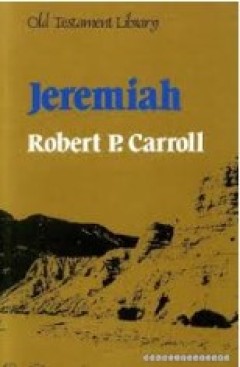
Jeremiah : A Commentary
- Edisi
- First Published
- ISBN/ISSN
- 0-334-02093-X
- Deskripsi Fisik
- ix + 874 pgs.; 22 cm.
- Judul Seri
- -
- No. Panggil
- 224.207 CAR j
- Edisi
- First Published
- ISBN/ISSN
- 0-334-02093-X
- Deskripsi Fisik
- ix + 874 pgs.; 22 cm.
- Judul Seri
- -
- No. Panggil
- 224.207 CAR j
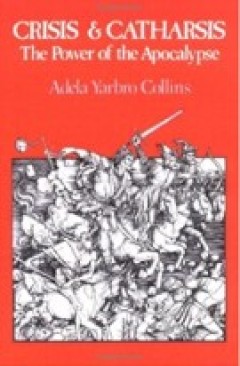
Crisis and Catharsis : The Power of the Apocalypse
- Edisi
- First Published
- ISBN/ISSN
- 0-664-24521-8
- Deskripsi Fisik
- 179 pgs.; 23 cm.
- Judul Seri
- -
- No. Panggil
- 228.06 COL c
- Edisi
- First Published
- ISBN/ISSN
- 0-664-24521-8
- Deskripsi Fisik
- 179 pgs.; 23 cm.
- Judul Seri
- -
- No. Panggil
- 228.06 COL c
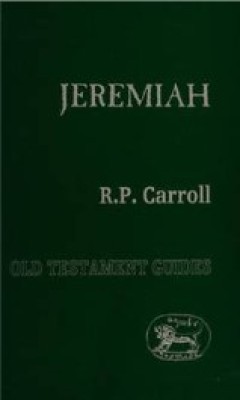
Jeremiah : Old Testament Guides
- Edisi
- First Published
- ISBN/ISSN
- 1-85075-146-3
- Deskripsi Fisik
- 128 pgs.; 21,5 cm.
- Judul Seri
- -
- No. Panggil
- 224.207 CAR j.a
- Edisi
- First Published
- ISBN/ISSN
- 1-85075-146-3
- Deskripsi Fisik
- 128 pgs.; 21,5 cm.
- Judul Seri
- -
- No. Panggil
- 224.207 CAR j.a

Jeremiah 2 : A Commentary on the Book of the Prophet Jeremiah Chapters 26 -52
- Edisi
- First Published
- ISBN/ISSN
- 0-8006-6022-6
- Deskripsi Fisik
- xxxi + 543 pgs.; 24 cm.
- Judul Seri
- -
- No. Panggil
- 224.207 HOL j2
- Edisi
- First Published
- ISBN/ISSN
- 0-8006-6022-6
- Deskripsi Fisik
- xxxi + 543 pgs.; 24 cm.
- Judul Seri
- -
- No. Panggil
- 224.207 HOL j2
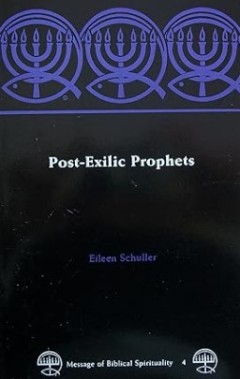
Post-Exilic Prophets
- Edisi
- First Published
- ISBN/ISSN
- 0-89453-570-6
- Deskripsi Fisik
- 192 pgs.; 21 cm.
- Judul Seri
- -
- No. Panggil
- 224 SCH p
- Edisi
- First Published
- ISBN/ISSN
- 0-89453-570-6
- Deskripsi Fisik
- 192 pgs.; 21 cm.
- Judul Seri
- -
- No. Panggil
- 224 SCH p
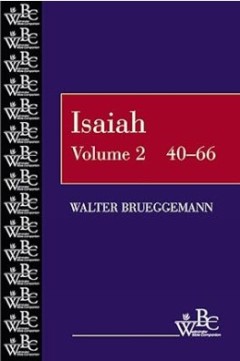
Isaiah 40-60
In this volume, Walter Brueggemann focuses on Second Isaiah (Isaiah 40-55), believed to be written by a second exilic poet, and Third Isaiah (Isaiah 56-66), a third group of texts that rearticulate Isaianic theology in yet another faith situation. Brueggemann discusses both the distinctiveness of the texts and their canonical relatedness. Books in the Westminster Bible Companion series assis…
- Edisi
- First Published
- ISBN/ISSN
- 0-664-25524-8
- Deskripsi Fisik
- x + 263 pgs.; 23 cm.
- Judul Seri
- -
- No. Panggil
- 224.1017 BRU i
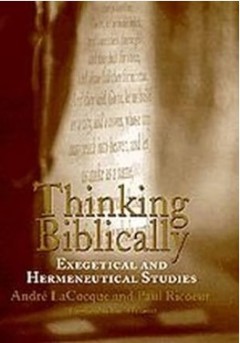
Thinking Biblically : Exegetical and Hermeneutical Studies
Unparalled in its poetry, richness, and religious and historical significance, the Hebrew Bible has been the site and center of countless commentaries, perhaps none as unique as Thinking Biblically. This remarkable collaboration sets the words of a distinguished biblical scholar, André LaCocque, and those of a leading philosopher, Paul Ricoeur, in dialogue around six crucial passages from the …
- Edisi
- First Published
- ISBN/ISSN
- 0-226-71337-7
- Deskripsi Fisik
- xix + 441 pgs.; 23,5 cm.
- Judul Seri
- -
- No. Panggil
- 221.6 LAC t
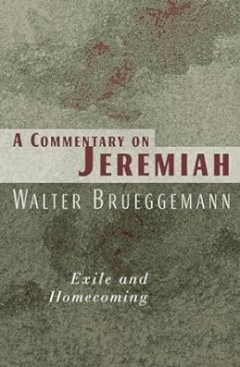
A Commentary on Jeremiah : Exile & Homecoming
Jeremiah's poignant lament over Judah's social and religious disintegration reflects God's own pathos-laden yearning for his disobedient covenant people. In this widely praised expository commentary Walter Brueggemann, one of the premier Old Testament scholars of our time, explores the historical setting and message of Jeremiah as well as the text's relevance for the church today. Offering a…
- Edisi
- First Published
- ISBN/ISSN
- 0-8028-0280-X
- Deskripsi Fisik
- xiv + 502 hlm.; 23 cm.
- Judul Seri
- -
- No. Panggil
- 224.207 BRU c

Pre-Exilic Prophecy
- Edisi
- First Published
- ISBN/ISSN
- 0-8146-5569-6
- Deskripsi Fisik
- ii + 183 pgs.; 21,5 cm.
- Judul Seri
- -
- No. Panggil
- 224 SKL p
- Edisi
- First Published
- ISBN/ISSN
- 0-8146-5569-6
- Deskripsi Fisik
- ii + 183 pgs.; 21,5 cm.
- Judul Seri
- -
- No. Panggil
- 224 SKL p
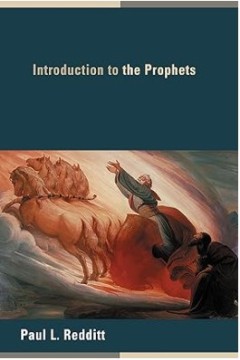
Introduction to the Prophets
Writing in a conversational rather than a scholarly tone, Paul Redditt assumes little or no prior knowledge of the Old Testament as he presents and introduces the Major and Minor Prophets in the canonical order of the English Bible. The chapters of Redditt's Introduction to the Prophets discuss the place of each book in the canon; the literary setting of each book; their structure, integrity…
- Edisi
- First Published
- ISBN/ISSN
- 978-0-8028-2896-5
- Deskripsi Fisik
- xv + 404 pgs.; 23 cm.
- Judul Seri
- -
- No. Panggil
- 224.061 RED i
 Karya Umum
Karya Umum  Filsafat
Filsafat  Agama
Agama  Ilmu-ilmu Sosial
Ilmu-ilmu Sosial  Bahasa
Bahasa  Ilmu-ilmu Murni
Ilmu-ilmu Murni  Ilmu-ilmu Terapan
Ilmu-ilmu Terapan  Kesenian, Hiburan, dan Olahraga
Kesenian, Hiburan, dan Olahraga  Kesusastraan
Kesusastraan  Geografi dan Sejarah
Geografi dan Sejarah